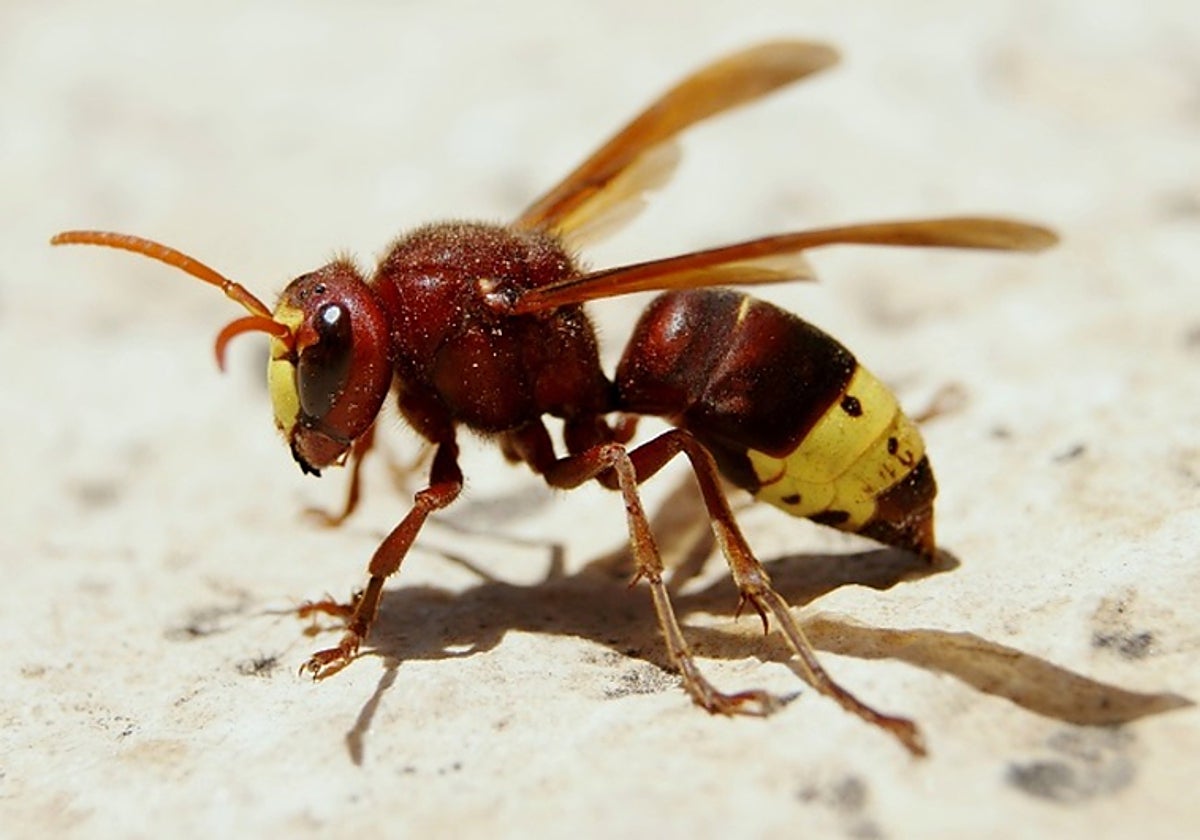Dreaded Oriental hornets spotted for the first time in Malaga city
The large, aggressive insects are capable of inflicting multiple, painful bites and stings, were filmed eating the carcass of a dead pigeon at the Guadalmedina river
Ignacio Lillo
Malaga
Friday, 29 September 2023, 16:46
Oriental hornets have have been spotted feasting on the carcass of a dead pigeon in Malaga city. The sight was filmed by passers-by who uploaded the video to social media asking what type of insect it was.
SUR sent the video of the large, brightly-coloured wasps to Raimundo Real, professor of zoology at the University of Malaga, who confirmed they are eastern hornets (Vespa orientalis). He said they have already been seen on the Costa del Sol, in Marbella and the El Palo area of Malaga, but this is the first time it has been scientifically identified in Malaga city.
A la altura del puente de Armiñán nos hemos encontrado un buen número de estos insectos voladores.alguien sabría decirme de cuál se trata? No serán avispas asiáticas? pic.twitter.com/X563rNgfP4
— francis cervantes (@francer645) September 27, 2023
The insect is native to the eastern Mediterranean as well as North Africa, but have been spotted in the province in the past two years. Real said that its arrival to Malaga could have been the result of a shipment of plants that arrived from a country where they live. They can be identified ed by their yellow forehead, and their yellow abdomen area.
Anyone who spots them should stay away as they are dangerous, Real added. Their sting is poisonous, and a single wasp can sting several times. But even worse is that they defend themselves in a group, with their poison able to cause anaphylactic shock, as is what happened to a resident of Marbella last summer.
They build nests near or inside houses, which can host dozens of wasps and a queen that lays hundreds of eggs. But they are smaller and less-dangerous than the so-called Asian predatory wasp (vespa velutina). There is still no evidence of the dreaded inspect - native to China- in Malaga, although there is in the north of Spain.
"If you see nests you should never disturb them, but report them to the police so that they can notify the specialised services to remove them," Real said. "Not just anyone cannot remove them because their sting goes through the normal protections of a beekeeper's suit, and they will attack in groups to defend their colony," he added.
